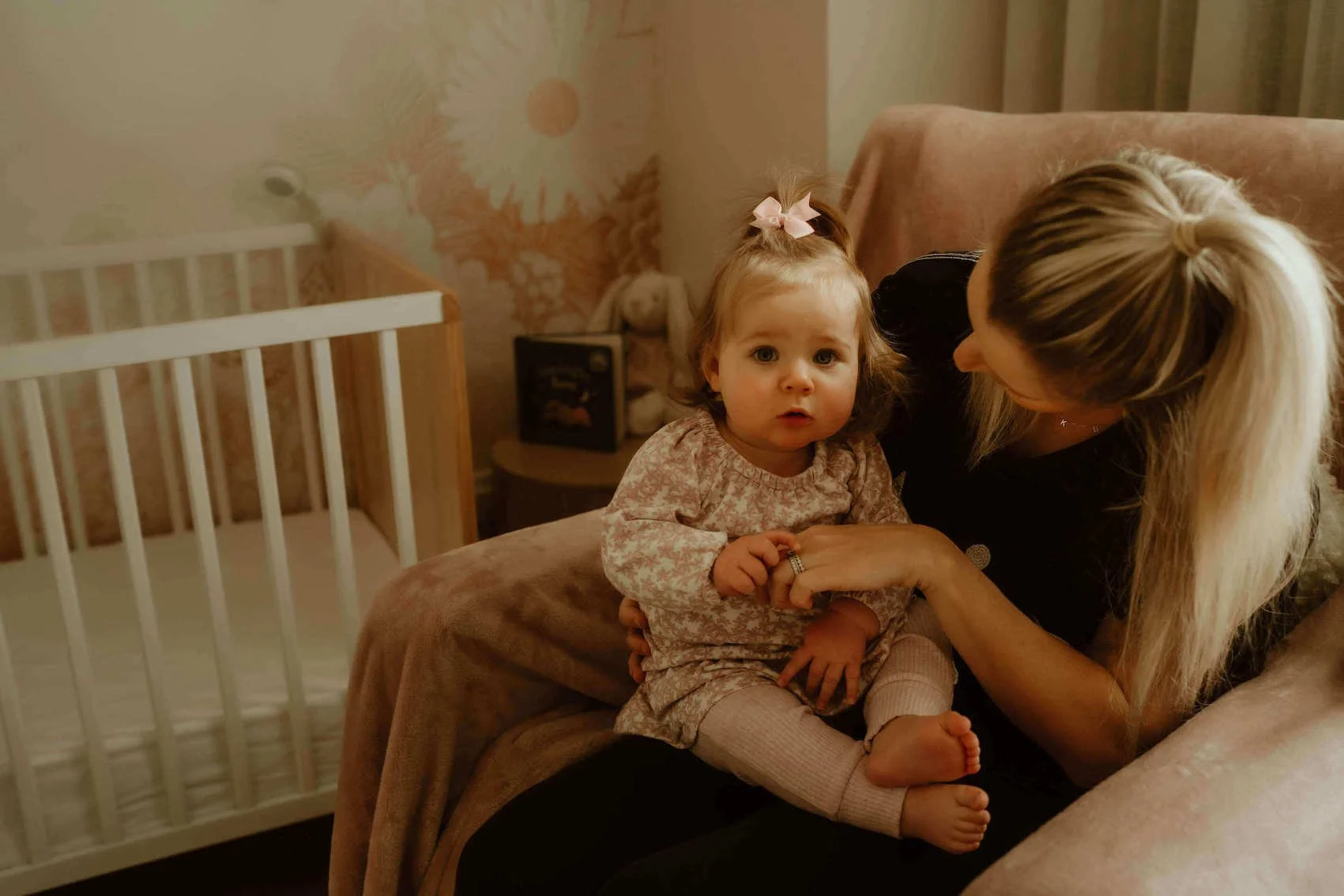How Sleeping Beauties Sleep School Could Change Your Life As A New Parent
Exhausted mums and dads, stop here.
Sleeping Beauties Sleep School
Ask any parent the value of a good night’s sleep, and they will tell you: utterly priceless. But no matter how desirable it is, catching those Zs can feel impossible - especially in the early days with a brand new baby.
It’s a struggle that Shire-based mum Jelena Checchin is familiar with. A mother of three, including three-year-old twins and a one-year old, Jelena began her career in marketing before transitioning to a new path after the realities of parenting kicked in. It culminated in the creation of her business, Sleeping Beauties Sleep School, a sleep consultation practice that, like her twins, has just celebrated its third birthday.
“I wanted to create a business dedicated to helping parents establish healthy sleep habits for their children,” she explains. “So far, I have supported over 250 families across Australia and internationally. My services cater to children aged 0-5 years and include in-person home consultations, overnight stays, and virtual consultations.”
“It’s incredibly rewarding to help parents regain the rest they need, knowing it’s positively impacting their well-being as well as their baby’s development. This experience has deepened my appreciation of sleep, and its role in fostering a healthy and happy family life.”
We spoke to Jelena about the ins-and-outs of sleep consultations, common misconceptions, her top tips, and the hottest question of the moment: to co-sleep, or not to co-sleep.
Can you describe the approach you use when you create your sleep plans? What does a sleep consultation actually look like?
I recognise that every baby and child is unique, which is why it’s essential to tailor sleep hygiene and routines. I always start with a thorough assessment of each family's situation to create personalised strategies and plans. There are a wide variety of parenting styles and preferences, and I know how important it is that sleep plans and training are designed with this in mind. Creating effective sleep plans is a careful and detailed process, designed to meet both the child's sleep needs and the parents' goals.
What are some of the most prevalent sleep issues and problems you encounter?
I frequently work with parents who, in their desperation for sleep, resort to co-sleeping, only to find it less effective than anticipated, and end up dealing with continued sleep disruptions.
I also assist a lot of mothers who, due to severe sleep deprivation, fall into an ongoing cycle of feeding their babies to sleep, resulting in reverse cycling, where the baby consumes most of their calories at night instead of during the day. Babies stuck in a reverse cycling pattern typically eat less during the day or snack feed and then wake frequently over night for bigger feeds - not ideal!
I recently worked with a client who was struggling with this exact issue, feeding her 9-month-old twin boys to sleep up to 6-8 times each night, which also led to co-sleeping. Together, we successfully transitioned the boys into their own cots and room, where they now sleep effectively during the day and 12 hours overnight uninterrupted without needing any assistance. Now, she and her partner can spend their evenings together again.
And what about common misconceptions - what are some common ones that new parents might have?
There are so many myths about newborn sleep, but one thing I always tell my clients is that you cannot spoil a newborn. Embrace the cuddles, contact naps, and hands-on settling — these are exactly what your newborn needs during this stage of their life.
What are your top tips for any parents reading this who might be relating a bit too strongly to the struggles of their baby’s sleep?
Don't hesitate to ask for help — there's no shame in acknowledging that you need support. As parents, we naturally want to give our children everything they need, but sometimes we're too close to the situation to see the bigger picture. An outside perspective can provide valuable guidance and help you find the right path forward.
Other tips:
Watch your baby’s awake windows
Have a consistent sleep schedule and wind down routine.
Try to stick to the same wake up and bed time as this is what will pre-set your baby's biological clock!
Finally, the question of the hour: to co-sleep, or not to co-sleep?
While co-sleeping offers certain benefits, I believe the associated risks outweigh them. Co-sleeping can pose significant dangers, potentially putting your baby’s life at risk. I always advise clients who choose to co-sleep to strictly follow the guidelines provided by Red Nose Australia to ensure their baby's safety.
You read it here first!
To explore Jelena’s services in more detail or arrange a consultation, visit sleepingbeautiessleepschool.com.au.





